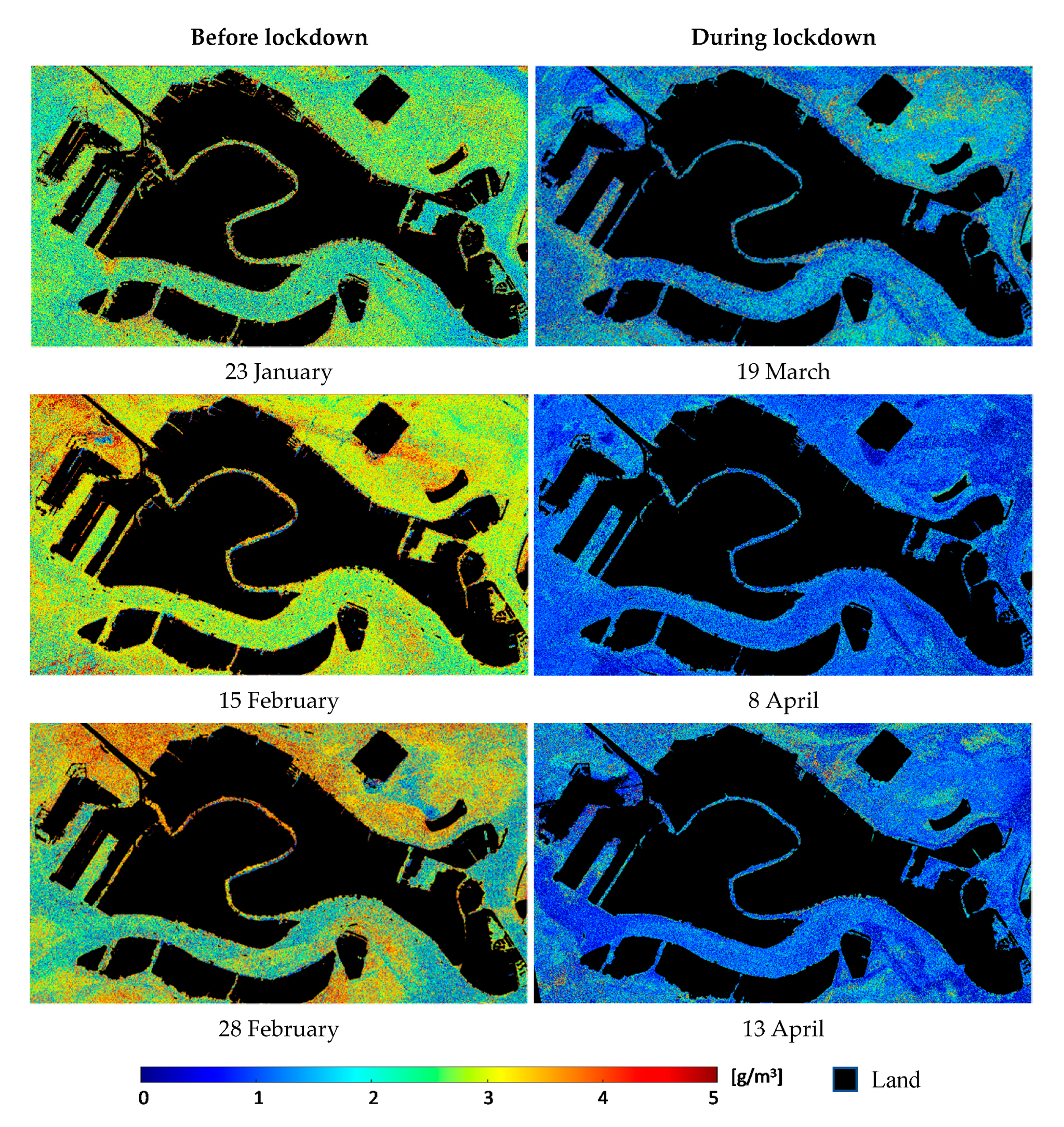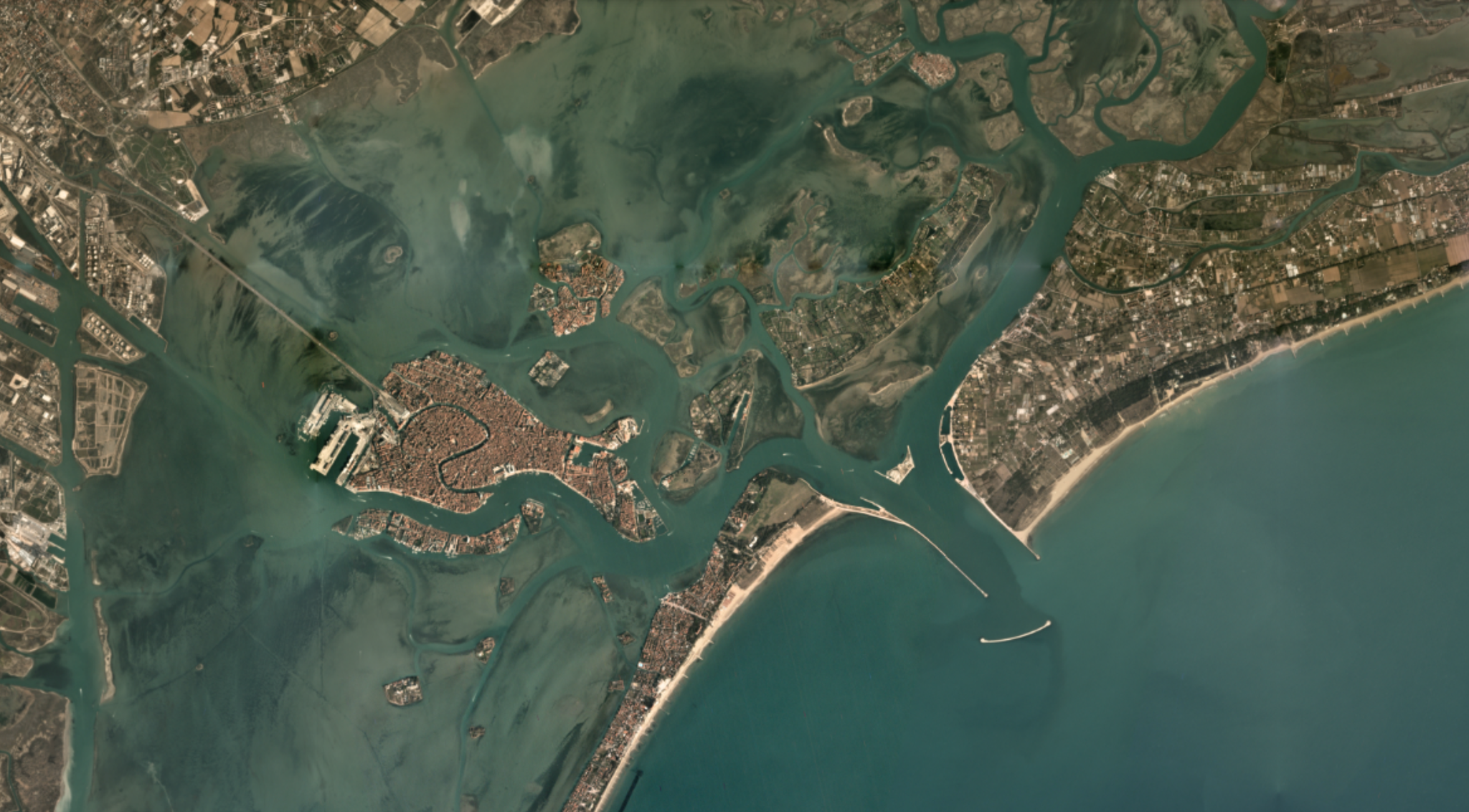PlanetScope Imagery Reveals that COVID Lockdown Reduced Sediments in Waters of Venice
Early in the COVID-19 pandemic, humanity noted several effects of lockdowns on the Earth system from orbit, including vacant highways, and reductions in air pollution. People affected in Venice reported that the local waters were clearer than they had been in decades. Milad Niroumand-Jadidi and colleagues at the University of Trento and German Aerospace Center, used PlanetScope imagery to measure the effects of the lockdown on Venice waters, as well as a flood that occurred just before the pandemic. They report “a remarkable reduction of the turbidity during the lockdown, due to the COVID-19 pandemic and capture the high values of TSM [total suspended matter] during the flood condition.” The authors further report that: “The high spatial resolution in combination with daily revisits of the PlanetScope constellation potentially enables advances in near real-time monitoring of inland/coastal aquatic systems. The meter-scale data offered by this constellation is of particular importance in studying small water bodies (e.g., narrow fluvial systems) where the spatial resolution of operational multispectral satellites such as Sentinel-2 and Landsat-8 (10−30 m) is not sufficient.” The full study is open access, and published in the journal Remote Sensing. [caption id="attachment_146129" align="aligncenter" width="2332"]


Ready to Get Started
Connect with a member of our Sales team. We'll help you find the right products and pricing for your needs


